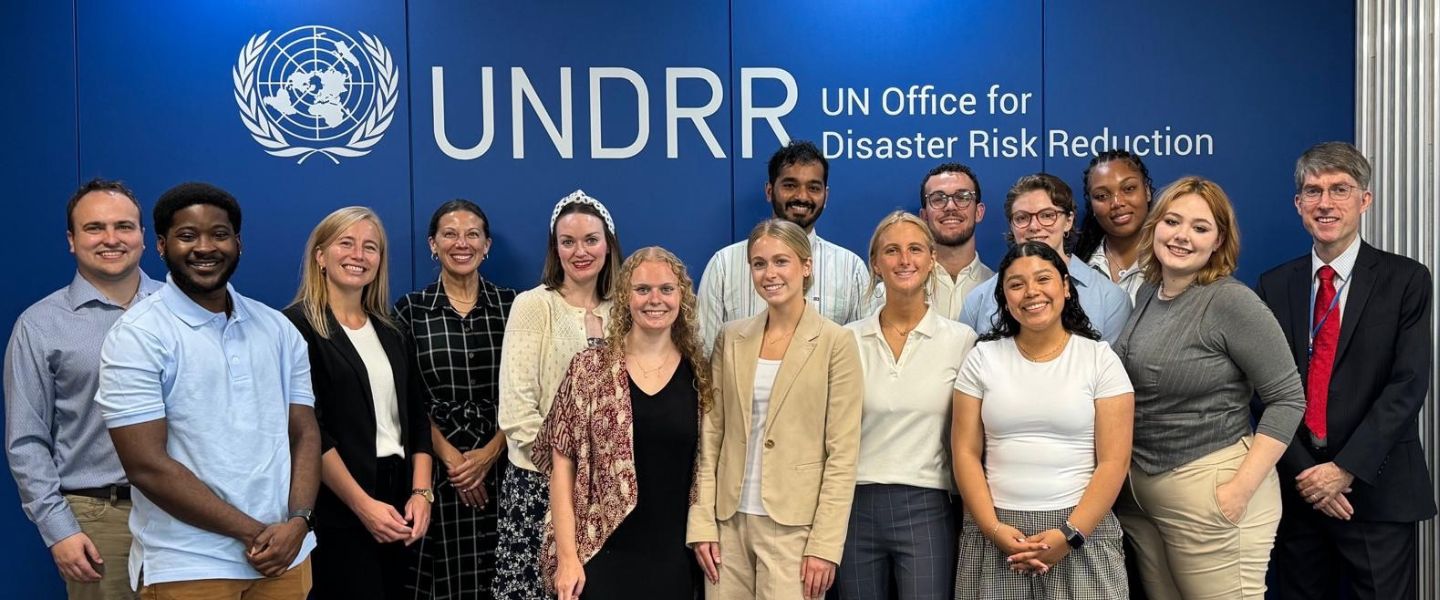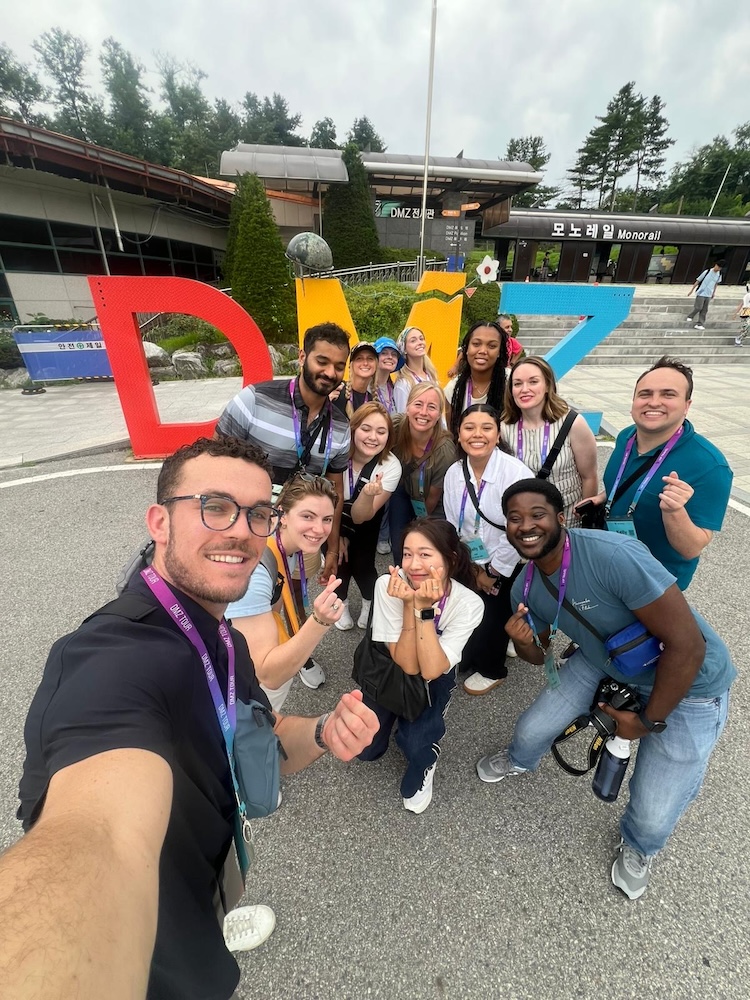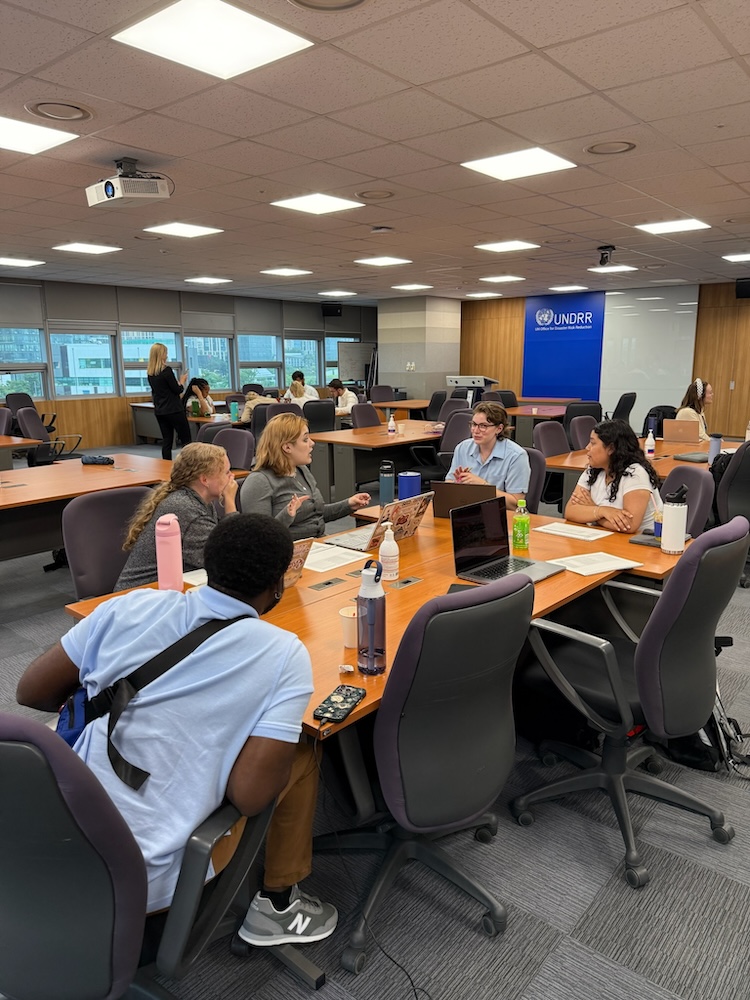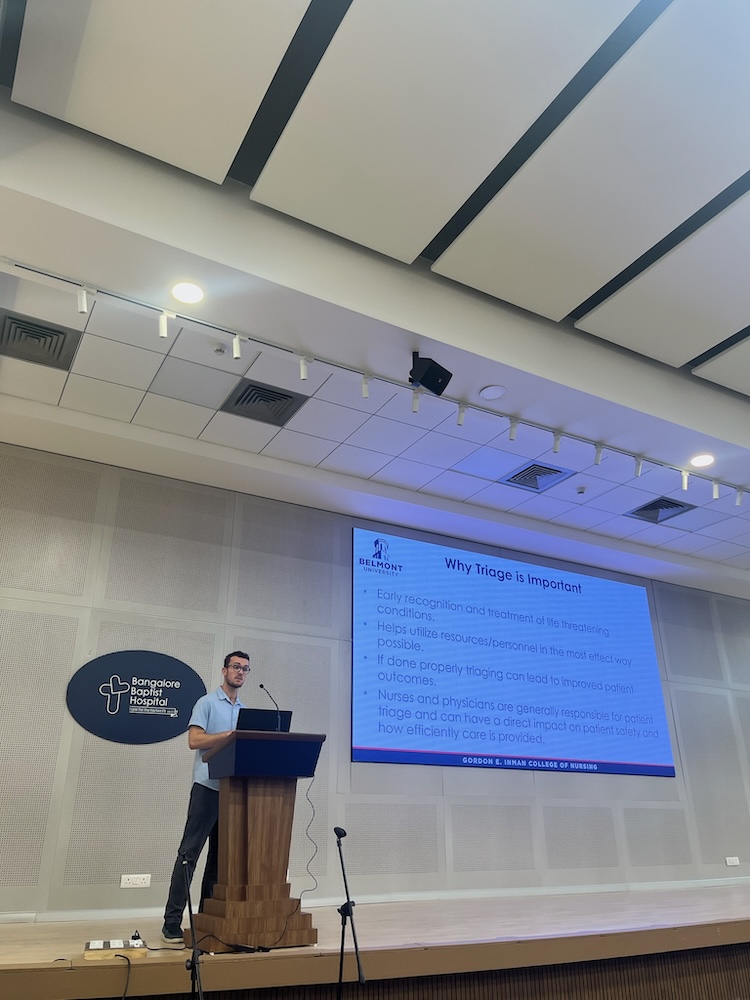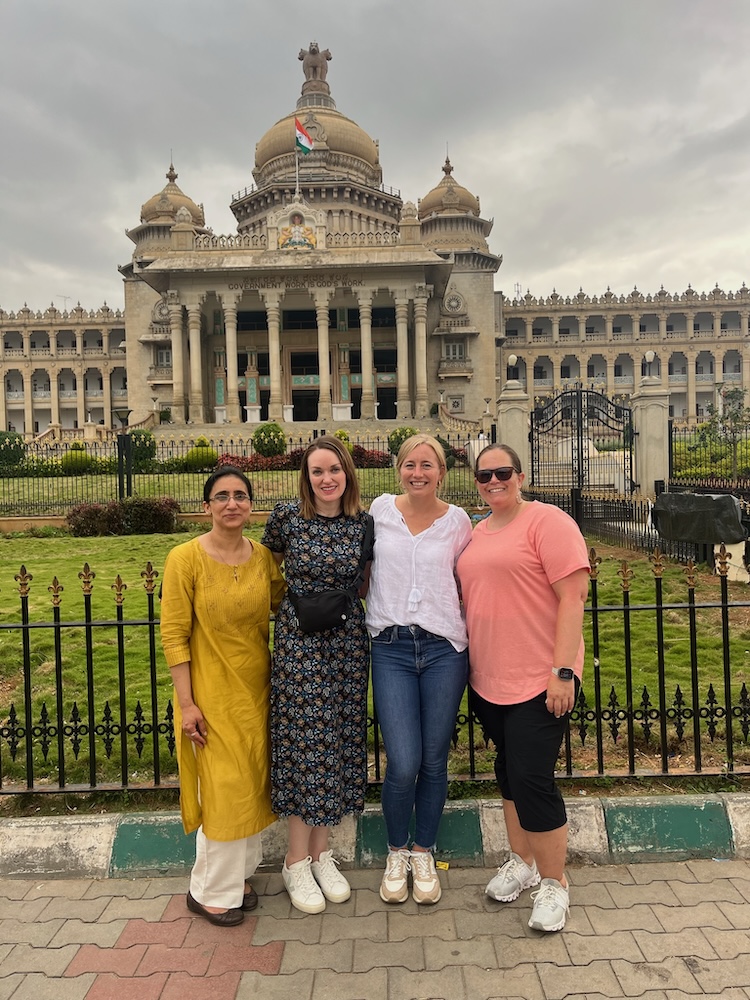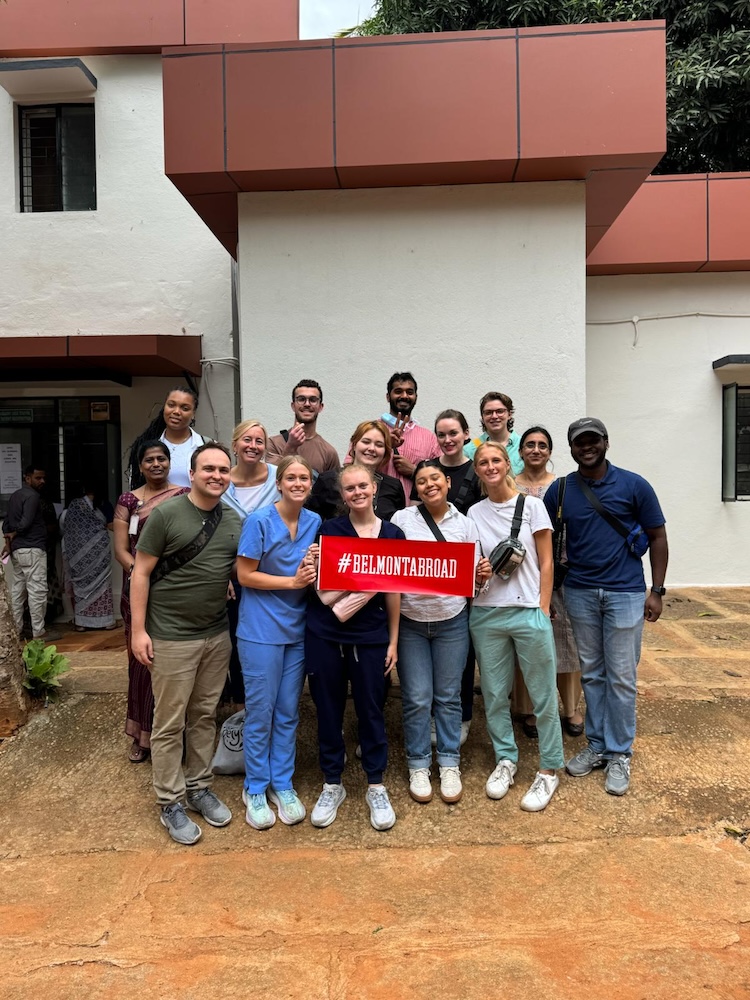Interdisciplinary program combines UN training in South Korea with community health work in India
Belmont University students completed a full lap around the world this summer, traveling from Nashville to South Korea to India in an unprecedented interdisciplinary global health elective that combined United Nations training with hands-on public health work.
The three-week program brought together 11 students from across the University — including undergraduate and graduate students from nursing, medicine, public health, social work, psychology and architecture — to study disaster risk reduction and global health through both high-level policy work and grassroots community engagement.
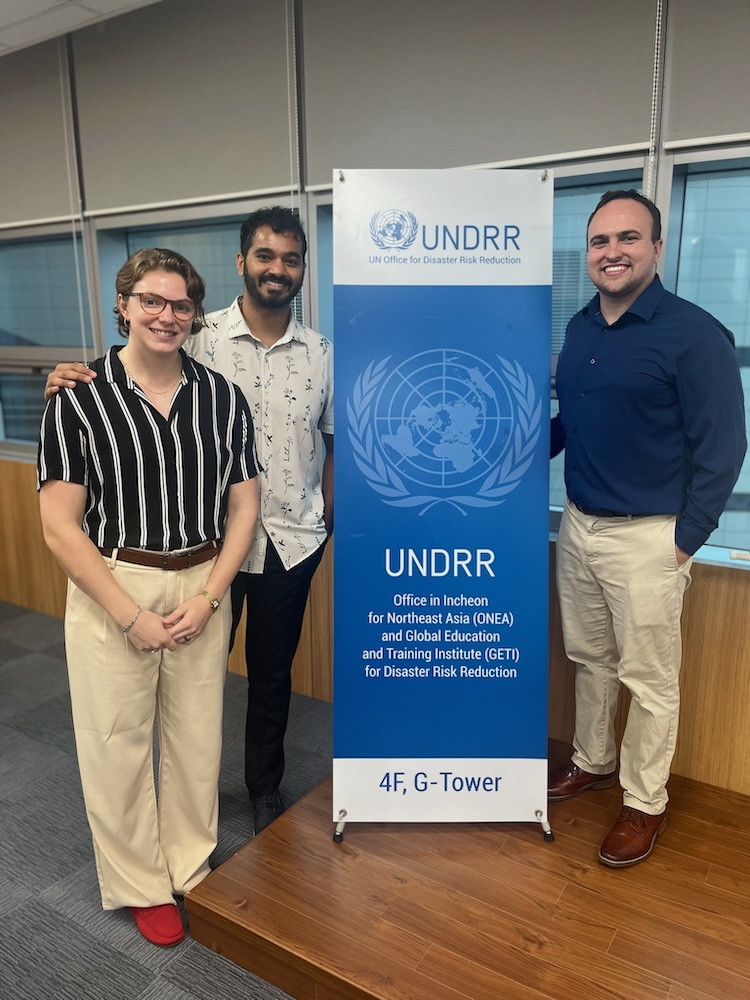 "We wanted to create a unique opportunity where students could learn foundational knowledge from world-renowned experts and then immediately put it into practice with our partners on the ground," said Dr. Taryn McCoy, assistant professor of nursing and global health coordinator. "That face-to-face, feet-on-the-ground experience is something students wouldn’t typically get otherwise."
"We wanted to create a unique opportunity where students could learn foundational knowledge from world-renowned experts and then immediately put it into practice with our partners on the ground," said Dr. Taryn McCoy, assistant professor of nursing and global health coordinator. "That face-to-face, feet-on-the-ground experience is something students wouldn’t typically get otherwise."
The journey began at the United Nations Office for Disaster Risk Reduction's (UNDRR) Global Education and Training Institute in Incheon, South Korea. There, students engaged in intensive workshops using the Sendai Framework and explored how disaster risk reduction strategies are implemented worldwide.
"The students met with Sanjaya Bhatia, head of the UNDRR’s Global Education and Training Institute on campus, and got a first-hand look at how the UN operates from a global level right down to the local level," said Dr. Ben Ryan, professor of public health and global initiatives at the Thomas F. Frist, Jr. College of Medicine. "That exposure is rare for students — it showed them how international policy connects directly to community health."
Following their UN experience, the group traveled to Bangalore, India, where they partnered with Kristu Jayanti University and Bangalore Baptist Hospital for direct community engagement work.
"Seeing the contrasts between South Korea and India helped me understand how infrastructure, environment and public planning are just as important as health care itself," said nursing student Averie Piehl. "It also reminded me that equality in public health means more than access to doctors, it means access to safe streets, clean air and a sense of security in the places people live."
Perhaps the most impactful day of the trip took students to DJ Halli, an urban slum in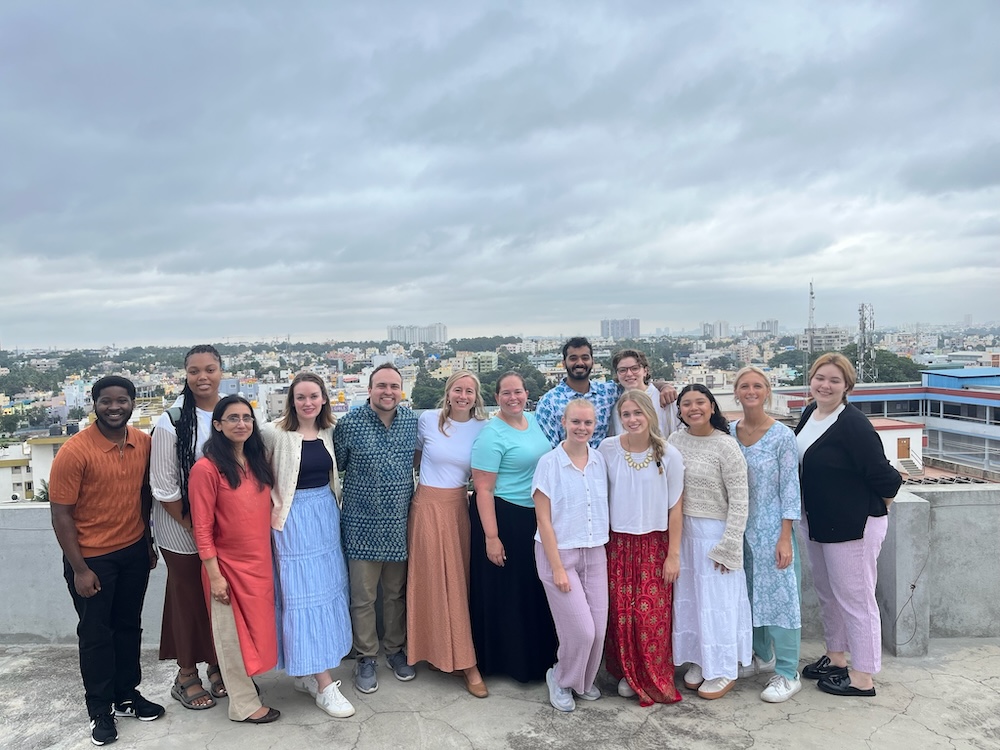 Bangalore, where they conducted house calls alongside nurses from Bangalore Baptist Hospital.
Bangalore, where they conducted house calls alongside nurses from Bangalore Baptist Hospital.
"That day was unforgettable,” said Dr. Tanu Rana, associate professor of microbiology and immunology at the Thomas F. Frist, Jr. College of Medicine. “Walking through DJ Halli alongside local nurses, students confronted the reality of what it means to live without access to basic resources. It moved many of them to tears and ultimately shaped every medical student’s capstone project.”
The experience reinforced critical concepts about social determinants of health in ways that textbooks cannot replicate.
"It's a very different conversation when you don't have clean water, when you don't have food, when you don't have appropriate shelter, and deep diving into what those roots of our health outcomes are," said Dr. Christian Williams, chair of the Department of Public Health. "It really illustrated the things that we talk about in a textbook in a very different way, in a way that I don't think anyone will walk away and forget."
The interdisciplinary structure proved as valuable as the international destinations. Students worked in mixed groups that crossed both undergraduate and graduate levels as well as academic disciplines, creating natural mentorship opportunities and collaborative learning experiences.
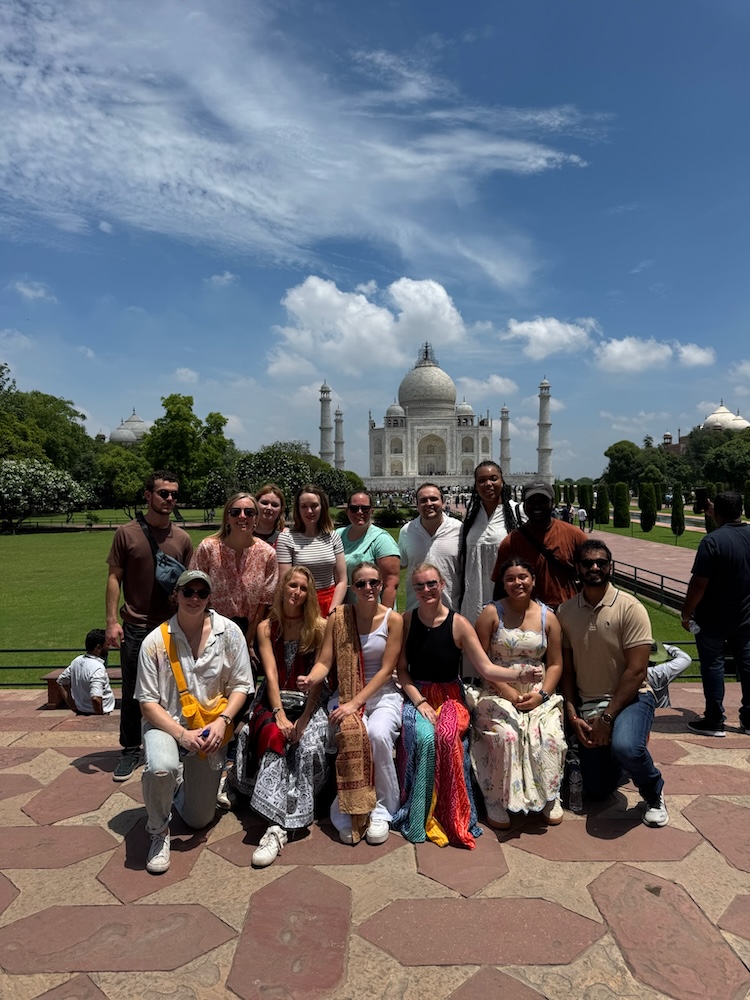 "I loved watching our students collaborate and learn from each other," McCoy reflected "We had a Doctorate of Nursing Practice student leading disaster response simulation exercises for nursing students and seeing them imagine what they would look like as health care leaders one day was amazing. That level of engagement and connectivity happened naturally behind the scenes — we didn't have to create that."
"I loved watching our students collaborate and learn from each other," McCoy reflected "We had a Doctorate of Nursing Practice student leading disaster response simulation exercises for nursing students and seeing them imagine what they would look like as health care leaders one day was amazing. That level of engagement and connectivity happened naturally behind the scenes — we didn't have to create that."
The hands-on experiences also reinforced career motivations for students entering health professions.
"I walk away from this experience more aware and more committed to creating a health care atmosphere that puts people at the center," said Ella Quincy, a psychology major pursuing pre-health studies.
The program required extensive planning that began in March 2024, involving collaboration across multiple colleges and departments, as well as Belmont's Study Abroad office. Looking ahead, the university is exploring opportunities to expand partnerships in both South Korea and India, with possibilities for longer-term service opportunities and collaboration with other medical schools.
"We have very strong partnerships in South Korea with the United Nations office and with our partners in India, and we're looking forward to future interdisciplinary and interprofessional collaboration opportunities across both of those sets of partnerships," McCoy shared.
This global health elective represents Belmont's commitment to interdisciplinary education and preparing students for increasingly complex global health challenges through immersive, collaborative learning experiences.
“This trip and these experiences deepened my appreciation of how culture, policy and environment shape public health outcomes,” said social work student Andrea Lopez Hernandez. “This journey has changed how I view global health: not just as a study of illness, but as a study of life itself.”

